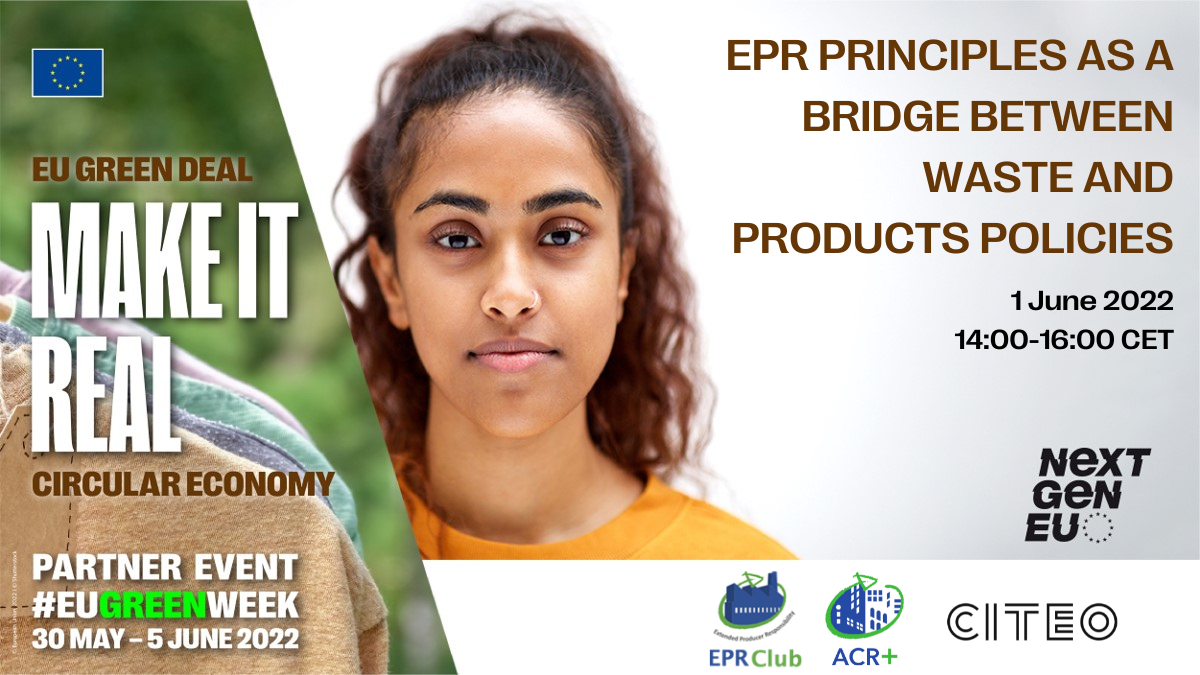EPR principles as a bridge between waste and products policies
From
01 June 2022 14:00
until
01 June 2022 16:00
At Online
Categories: ACR+ Events

Invited by ACR+, as Secretariat of the EPR Club, together with its member CITEO, EPR experts discussed how the design and implementation of extended producer responsibility policies should motivate producers to improve the design of their products and packaging. A roundtable then focused on policy options for the revision of the Waste Framework Directive in order to reach municipal waste prevention objectives.
The recording and the presentations are available on the event page.
1st PANEL - EPR PRINCIPLES AS A TOOL TO CHANGE OUR RELATIONSHIP WITH WASTE AND PRODUCTS
Beyond existing measures and schemes, the application of EPR principles can facilitate systemic change in our approach to waste and products. The first discussion panel focused on how design and implementation of EPR policies should motivate producers to improve the design of their products and packaging, facilitating circular business models such as performance-based contracting, maintenance, reuse, recycling, cradle-to-cradle, sharing platforms. The panel also addressed how outcomes and experiences gained through EPR on packaging could be applied to more products and sectors, starting with the ones producing the most waste and litter, helping to achieve the result of motivating industries to continuously improve their products and processes and stimulating citizens to adopt more sustainable consumption behaviours
Discussion panel moderated by Françoise Bonnet (ACR+), with Peter Borkay, OECD; Margaux Valentin, CITEO; Vanessa Chesnot, FEVE - European Federation of Glass Packaging Makers
2nd Panel - CITIES AND REGIONS WASTE MANAGEMENT POLICIES : GOOD PRACTICES AND OPPORTUNITIES FOR THE REVISION OF THE WASTE FRAMEWORK DIRECTIVE
EU policy framework on waste have demonstrated successes in increasing rates of collection and recycling, but further efforts should be made to meet circular economy objectives beyond recycling, meaning decreasing waste production. The panel discussed which policy options for a revision of the Waste Framework Directive could work to reach municipal waste prevention objectives, and how cities and regions are already working on good practices to make circular economy a tangible and not so far future.
Discussion panel moderated by Jean Benoit Bel (ACR+), with Iain Clunie, Zero Waste Scotland; Yoann Billon, Besançon Municipality



